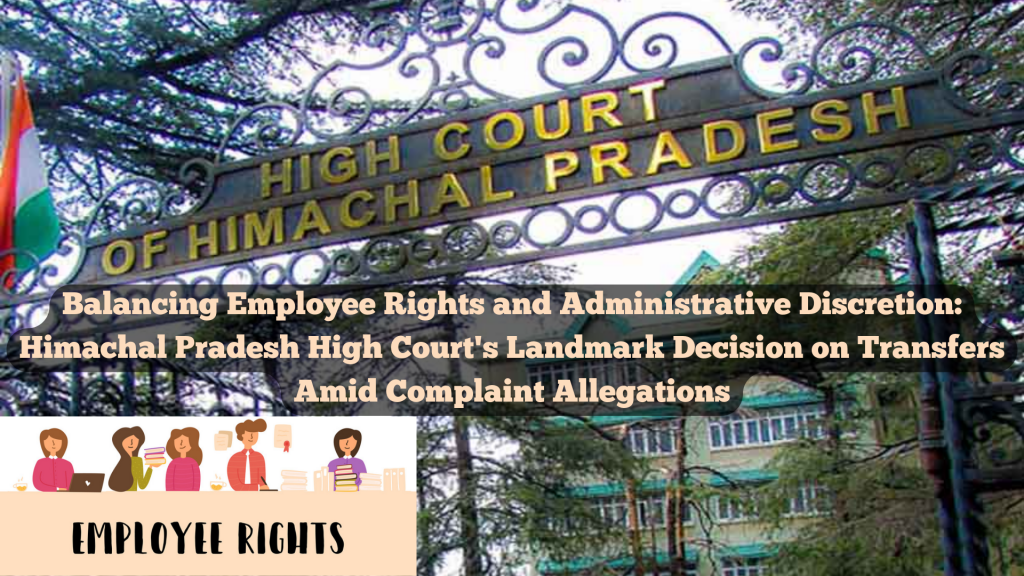
Right To Information Vs. Confidentiality: A Delicate Balance In Sexual Harassment Cases
Judgement Given On : 30/03/2016
In a recent case, Puspanjali Padhy vs. Central Public Information Officer, Indian Overseas Bank, the Central Information Commission (“CIC”) was confronted with a challenging question: Can a complainant of sexual harassment request information about her own complaint through the Right to Information Act, 2005 (“RTI Act”), even when confidentiality is protected under Section 16 of the Sexual Harassment of Women at Workplace (Prevention, Prohibition and Redressal) Act, 2013 (“the Act”)?
The Case at a Glance
Puspanjali Padhy, the appellant in this case, filed a complaint of sexual harassment under the provisions of the Act. However, upon the conclusion of the inquiry, she was not provided with the report containing the findings and conclusions of the Internal Complaints Committee (“ICC”). In response, Padhy submitted an RTI application seeking this information. The Central Public Information Officer (“CPIO”) denied her request, invoking various sections of the RTI Act (specifically, Sections 8(1)(b), (c), (g), and (j)). Unsatisfied with the decision of the CPIO and the subsequent ruling of the First Appellate Authority (“FAA”), Padhy approached the CIC, seeking direction to the CPIO to provide the information she requested and requesting compensation for the unnecessary ordeal she endured in seeking this information.
Legal Arguments and CIC’s Ruling
The appellant’s counsel argued that Section 11(1) of the Act stipulates that a copy of the inquiry’s findings must be made available to both parties once the inquiry concludes. This provision aims to empower the parties involved, allowing them to file appeals if they disagree with the findings. On the other hand, the respondent’s counsel contended that Section 13 of the Act places the responsibility for providing this information on the ICC, which conducted the inquiry. Therefore, instead of approaching the bank (the respondent), Padhy should have contacted the ICC, which would have promptly furnished her with the report.
The CIC did not delve extensively into the broader question of whether information related to a sexual harassment matter could be disclosed to the complainant herself through RTI, especially in light of Section 16 of the Act, which mandates confidentiality and non-disclosure. However, the CIC did clarify that Section 16 of the Act primarily deals with the publication of ICC recommendations in the media and does not prevent the provision of such information to the concerned parties themselves.
The CIC ruled that the RTI provisions invoked by the CPIO, namely Section 8(1)(b), (c), (g), and (j), were neither relevant nor applicable in this case. According to Section 13(1) of the Act, it is the duty of the employer (the bank, in this case) to make the inquiry report available to the parties involved.
Compensation for Unnecessary Harassment
The CIC recognized that the CPIO’s approach had forced Padhy to seek information through the RTI route, causing undue distress. It pointed out that the CPIO had overlooked Section 13(1) of the Act, which mandates the employer to provide the report to the parties, without requiring them to take additional steps. Consequently, the CIC ordered the CPIO to pay Padhy a token compensation of Rs. 2,000 under Section 19(8)(b) of the RTI Act.
Key Take aways
This case underscores several critical points:
- Full Disclosure to Parties: The Act mandates that all available information regarding the proceedings must be provided to the parties involved, promoting transparency and fairness.
- Employer’s Responsibility: The responsibility for providing the required information rests with the employer, ensuring that parties are not subjected to additional distress or undue bureaucracy.
- RTI Act Applicability: The RTI Act applies only in specific circumstances, and its exemptions should not be invoked without proper justification.
In summary, while confidentiality is crucial in handling sexual harassment cases, this case illustrates that withholding information from the complainant, especially when mandated by law, can lead to undesirable consequences, including compensation for undue harassment.
